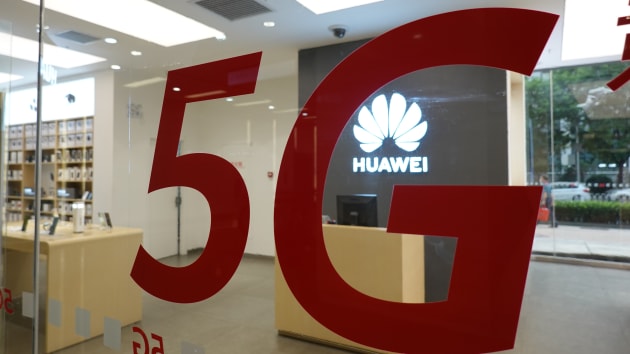Huawei reported a sharp slowdown in growth for the first half of 2020 as the company continued to see the impact of U.S. sanctions and the global coronavirus pandemic.
Meanwhile, the Chinese technology giant is also awaiting a decision, expected to be delivered on Tuesday, by the U.K. government on whether it will be allowed to participate in the country’s 5G networks.
The Shenzhen-headquartered company reported revenue of 454 billion yuan or $64.23 billion, according to the exchange rate on the company’s earnings release. That represents 13.1% year-on-year rise and the slowest first half revenue growth since the first six months of 2013.
Huawei has likely felt some impact from the coronavirus pandemic which has hurt the global economy. But it is also continuing to be hit by U.S. sanctions. Last year, Huawei was put on a U.S. blacklist known as the” Entity List,” which restricted its access to American technology.
It meant that Huawei could no longer use licensed Google Android software and services on its mobile phones, something it had relied on for success in international markets outside of China.
While Huawei managed to maintain growth in its consumer division in the first half of 2020, its largest business by revenue, it did so by increasing its focus on the China market. CNBC recently reported that Huawei has seen market share in some key international markets fall this year.
In May, Washington’s introduced a new rule which requires foreign manufacturers using U.S. chip-making equipment to get a license before they are allowed to sell semiconductors to Huawei.
There is no indication that the U.S. will grant licenses either. Chips that were in production when that rule came into effect could be shipped to Huawei as long as it was completed within 120 days from May 15.
Huawei previously said that its business “will inevitably be affected,” but has yet to give a clear outline of the exact financial impact. Analysts previously told CNBC that the move could be a big blow for Huawei as it relies heavily on Taiwan chipmaker TSMC for the majority of its semiconductors. This rule would, in theory, hurt its ability to obtain chips from TSMC.
UK decision pending
Meanwhile, Huawei faces other headwinds.
On Tuesday, U.K. Prime Minister Boris Johnson will be convening his National Security Council (NSC) to discuss Huawei’s future in the country’s 5G networks.
In January, the U.K. said that Huawei could play a limited role in the nation’s 5G rollout.
However, the U.K.’s National Cyber Security Centre (NCSC) launched an emergency review of Huawei’s role shortly after Washington’s latest round of sanctions against Huawei related to semiconductors.
Earlier this month, The Sunday Times and The Daily Telegraph newspapers reported that the U.K. is drawing up plans to tell carriers to stop buying Huawei equipment and also phase out existing gear from the country’s telecommunications networks.
The NSC will be assessing the NCSC report on Tuesday and Oliver Dowden, the U.K.’s Secretary of State for Digital, Culture, Media and Sport, is expected to address the British parliament on the issue.
U.K. telecommunications operators have warned that moves to strip out existing Huawei gear could cost “billions” and potentially lead to network blackouts.

